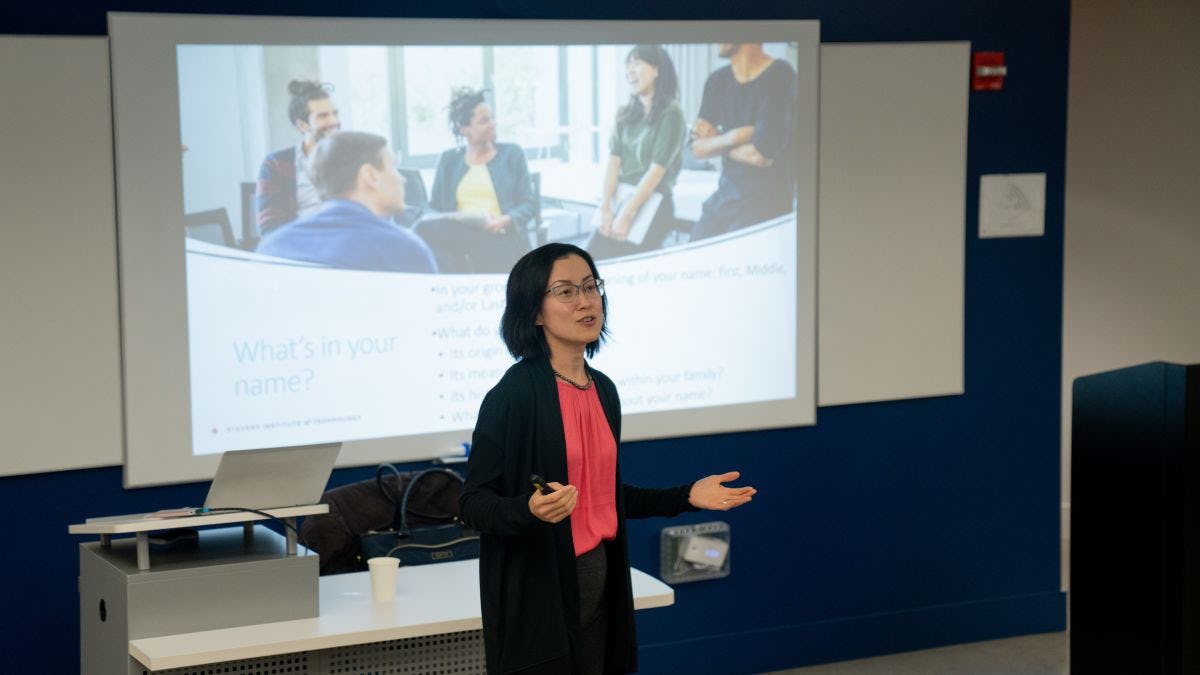
Online Management Master's Program
Program Details
Degree
Master of ScienceSchool
School of BusinessDepartment
School of Business Graduate ProgramAvailable
On Campus & OnlineThrough the Master of Science in Management, students are guided in developing a core set of critical thinking, collaboration, communication and innovation skills that are keys to success at the intersection business and technology.
Grounded in the fields of management, economics, applied psychology, and quantitative methods, the unique 10-course curriculum encompasses the primary business disciplines to help you round out your undergraduate training and experience.
Take a look below at the recommended course sequence to help guide your online enrollment:
Term 1
MGT 506 Economics for Managers - 3 Credits
This course introduces managers to the essence of business economics – the theories, concepts and ideas that form the economist’s tool kit encompassing both the microeconomic and macroeconomic environments. Microeconomic topics include demand and supply, elasticity, consumer choice, production, cost, profit maximization, market structure, and game theory while the Macroeconomic topics will be GDP, inflation, unemployment, aggregate demand, aggregate supply, fiscal and monetary policies. In addition the basic concepts in international trade and finance will be discussed.
MGT 609 Project Management Fundamentals - 3 Credits
This course deals with the basic problems of managing a project, defined as a temporary organization built for the purpose of achieving a specific objective. Both operational and conceptual issues will be considered. Operational issues include definition, planning, implementation, control, and evaluation of the project. Conceptual issues include project management vs. hierarchical management, matrix organization, project authority, motivation, and morale. Cases will be used to illustrate problems in project management and how to resolve them.
Term 2
MGT 641 Marketing Management (3)
The study of marketing principles from the conceptual, analytical, and managerial points of view. Topics include: strategic planning, market segmentation, product life-cycle, new product development, advertising and selling, pricing, distribution, governmental, and other environmental influences as these factors relate to markets and the business structure.
MGT 657 Operations Management - 3 Credits
Covers the general area of management of operations, both manufacturing and non-manufacturing. The focus of the course is on productivity and total quality management. Topics include quality control and quality management, systems of inventory control, work and materials scheduling, and process management.
Term 3
MGT 671 Technology and Innovation Management (3)
This course introduces the student to topics in the management of technology and examines the critical role of technology as a strategic resource to enable management to achieve organizational objectives. Topics include entrepreneurship, developing and managing new ventures, managing innovation, the technology life-cycle and technology forecasting, management of research and development (R&D) personnel and projects, evaluation of R&D projects ,and integrating technology strategy with the organization’s overall business strategy.
MGT 689 Organizational Behavior and Design (3)
This course exposes students to the macro and micro aspects of organizational behavior and theory that are essential to technology management. The macro aspects will focus on structural contingency theory as an approach to effective organizational design. The micro aspects will focus on leadership, teams, and individual behavior (e.g., motivation, job attitudes). Specific issues and problems which are covered include: the relationship of the organization with the external environment, the influence of the organization’s strategies, culture, size, and production technology on the organization’s design, and strategies for managing organizational processes such as teams, conflict, power/politics and organizational change. Current topics, that are key to technology management (e.g., virtual teams), will be stressed.
Term 4
MGT 699 Strategic Management (3)
An interdisciplinary course which examines the elements of, and the framework for, developing and implementing organizational strategy and policy in competitive environments. The course analyzes management problems both from a technical-economic perspective and from a behavioral perspective. Topics treated include: assessment of organizational strengths and weaknesses, threats, and opportunities; sources of competitive advantage; organizational structure and strategic planning; and leadership, organizational development, and total quality management. The case method of instruction is used extensively in this course.
FIN 515 Financial Decision Making - 3 Credits
Corporate financial management requires the ability to understand the past performance of the firm in accounting terms; while also being able to project the future economic consequences of the firm in financial terms. This course provides the requisite survey of accounting and finance methods and principles to allow technical executives to make effective decisions that maximize shareholder value.
Term 5
MGT 612 Leader Development (3)*
Project success depends, largely, on the human side. Success in motivating project workers, organizing and leading project teams, communication and sharing information, and conflict resolution, are just a few areas that are critical for project success. However, being primarily technical people, many project managers tend to neglect these "soft" issues, assuming they are less important or that they should be addressed by direct functional managers. The purpose of this course is to increase awareness of project managers to the critical issues of managing people and to present some of the theories and practices of leading project workers and teams.
MIS 710 Process Innovation and Management - 3 Credits*
This course focuses on the role of information technology (IT) in reengineering and enhancing key business processes. The implications for organizational structures and processes, as the result of increased opportunities to deploy information and streamlining business systems are covered.
*Elective Concentration Courses
Swap out these courses with any of the below-listed courses based on your concentration of interest:
Concentration | Course |
|---|---|
Management | MGT 610 Strategic Perspectives on Project Management MGT 611 Project Analytics MGT 612 Leader Development MGT 613 Project Portfolio Management and Program Office MGT 619 Leading Across Projects |
Information Systems | MIS 710 Process Innovation and Management MIS 699 Managing Emerging Information Technology MIS 730 Integrating Information System Technologies MIS 760 Information Technology Strategy |